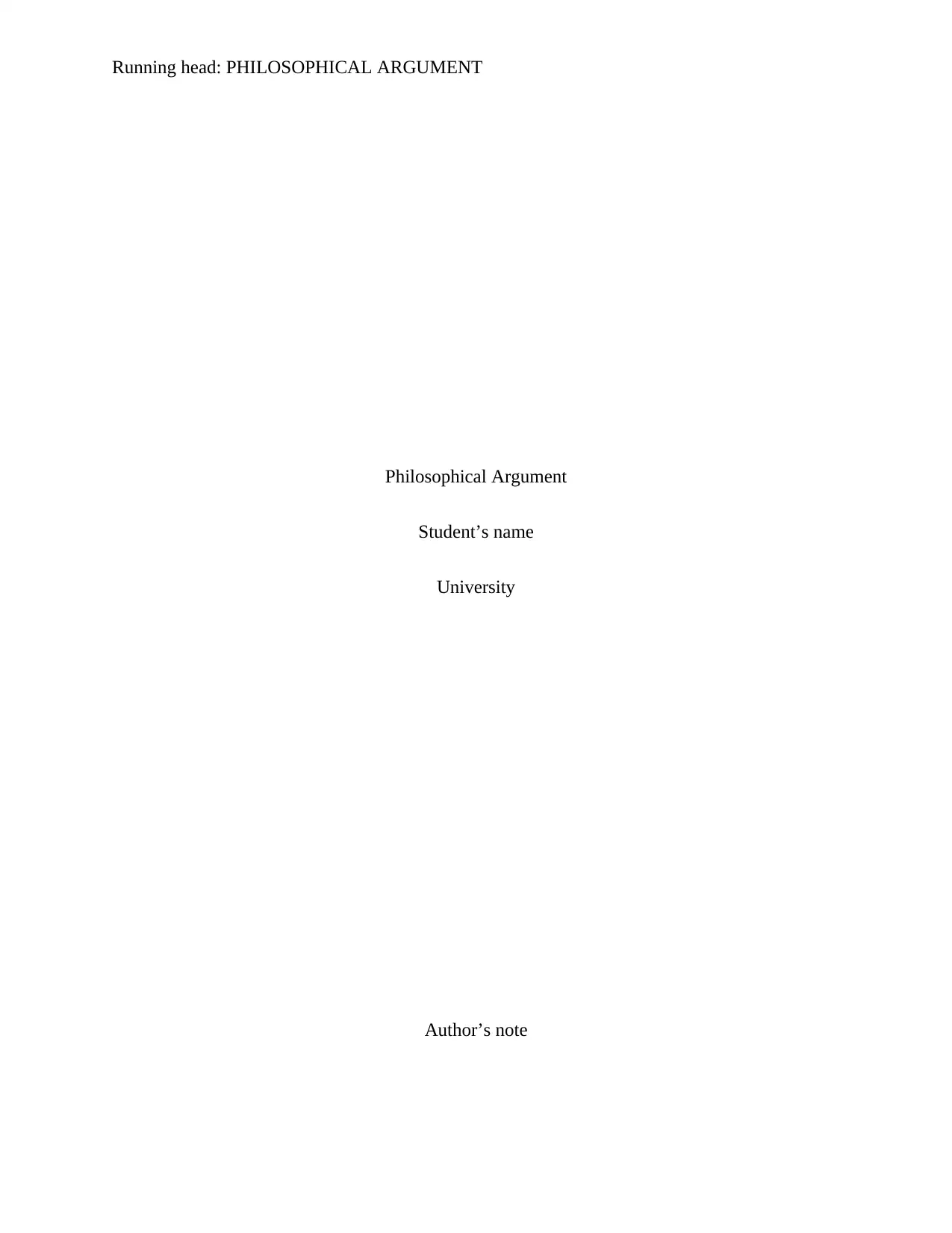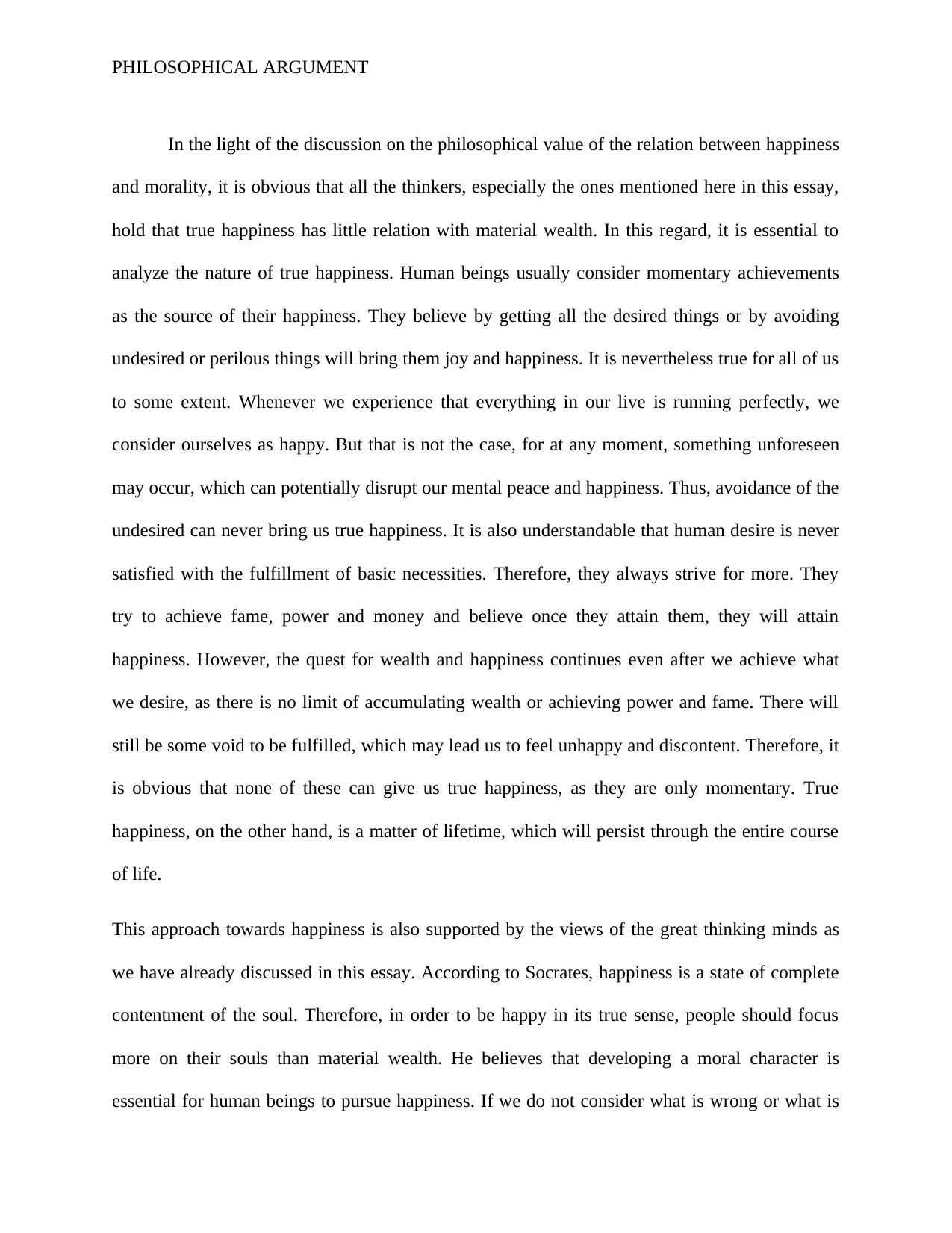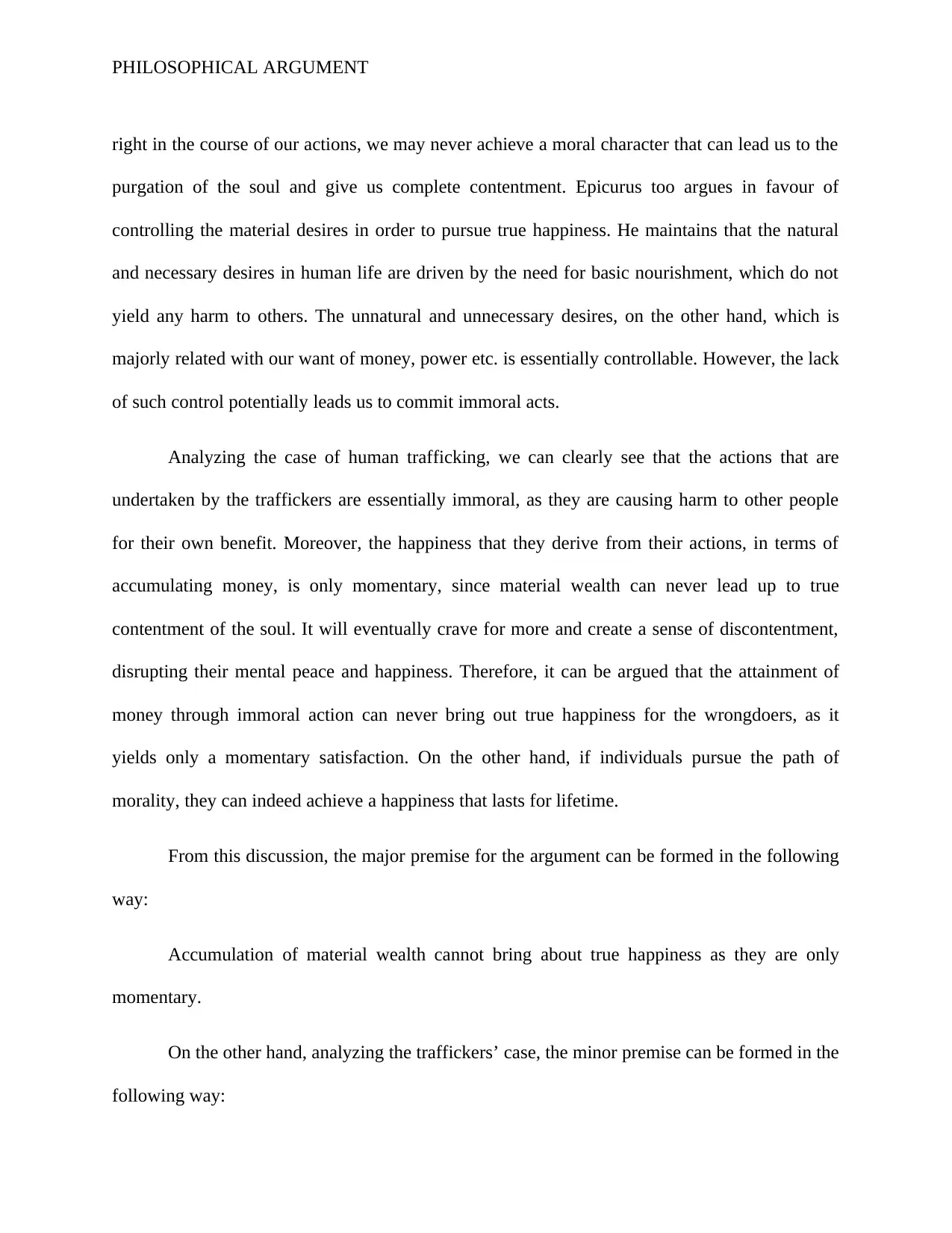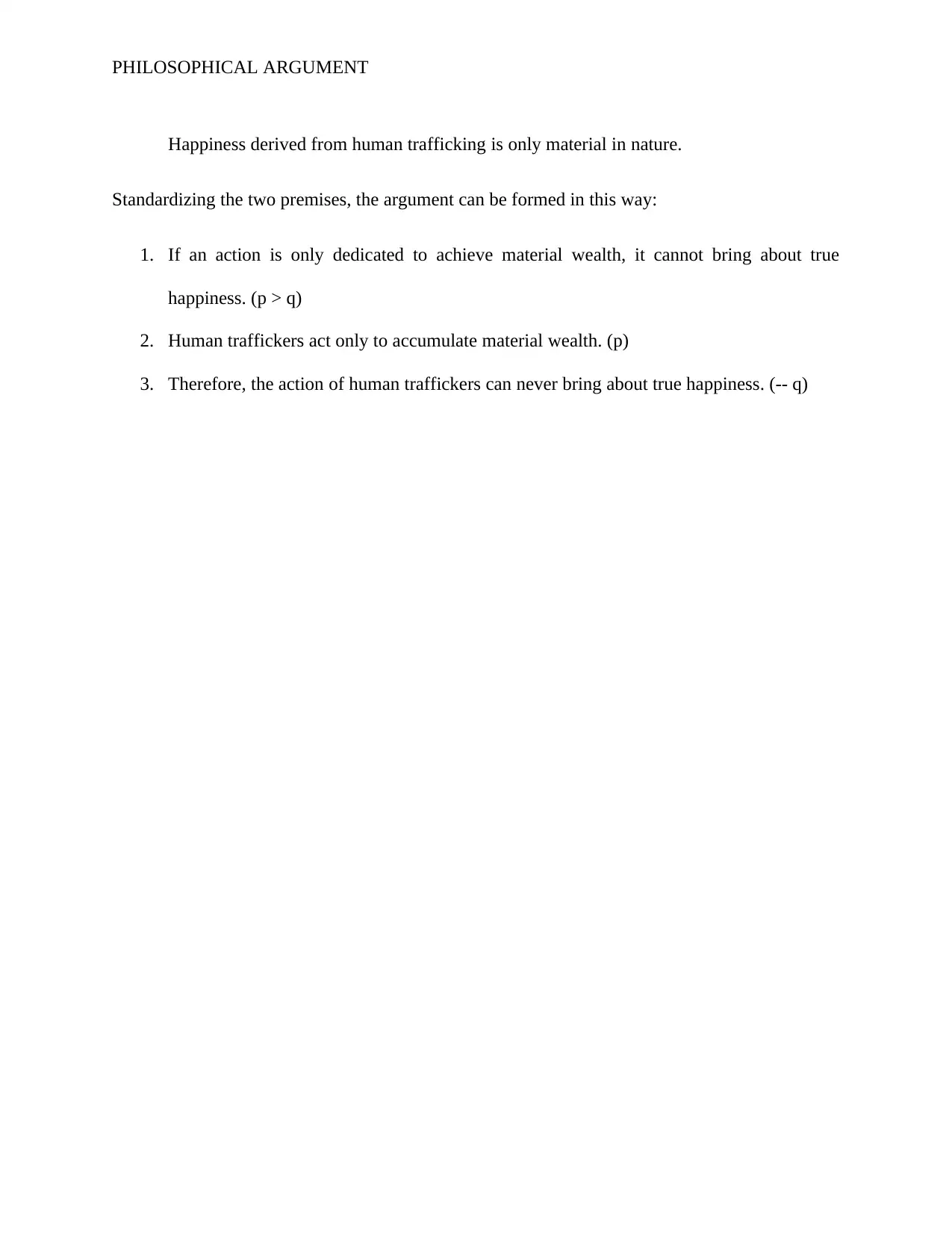CPHI101 Essay: Philosophical Argument on Happiness and Morality
VerifiedAdded on 2022/09/18
|4
|818
|22
Essay
AI Summary
This essay presents a philosophical argument regarding the relationship between happiness and morality, drawing upon a contemporary issue of human trafficking. The author explores the views of Socrates and Epicurus to analyze the nature of true happiness, arguing that material wealth is not a source of genuine contentment. The essay examines the actions of human traffickers, highlighting the immorality of their actions and the fleeting nature of the happiness derived from accumulating wealth. It contrasts this with the pursuit of morality as a path to lasting happiness, forming premises to support the argument that actions aimed solely at material gain cannot bring about true happiness. The essay fulfills the requirements of a CPHI101 assignment, including MLA format, primary and secondary sources, and a focus on argumentation.
1 out of 4






![[object Object]](/_next/static/media/star-bottom.7253800d.svg)